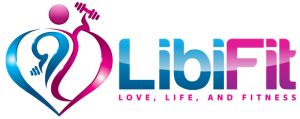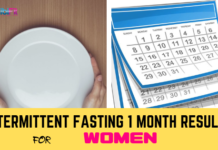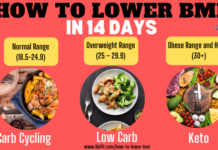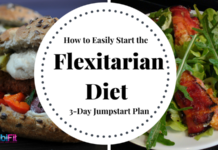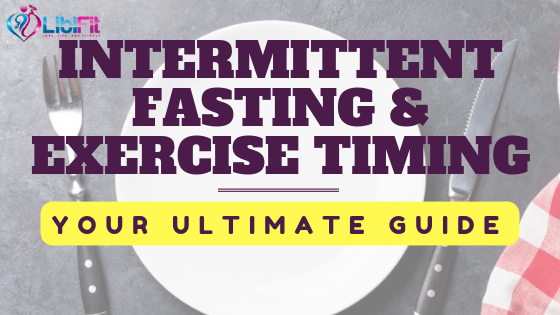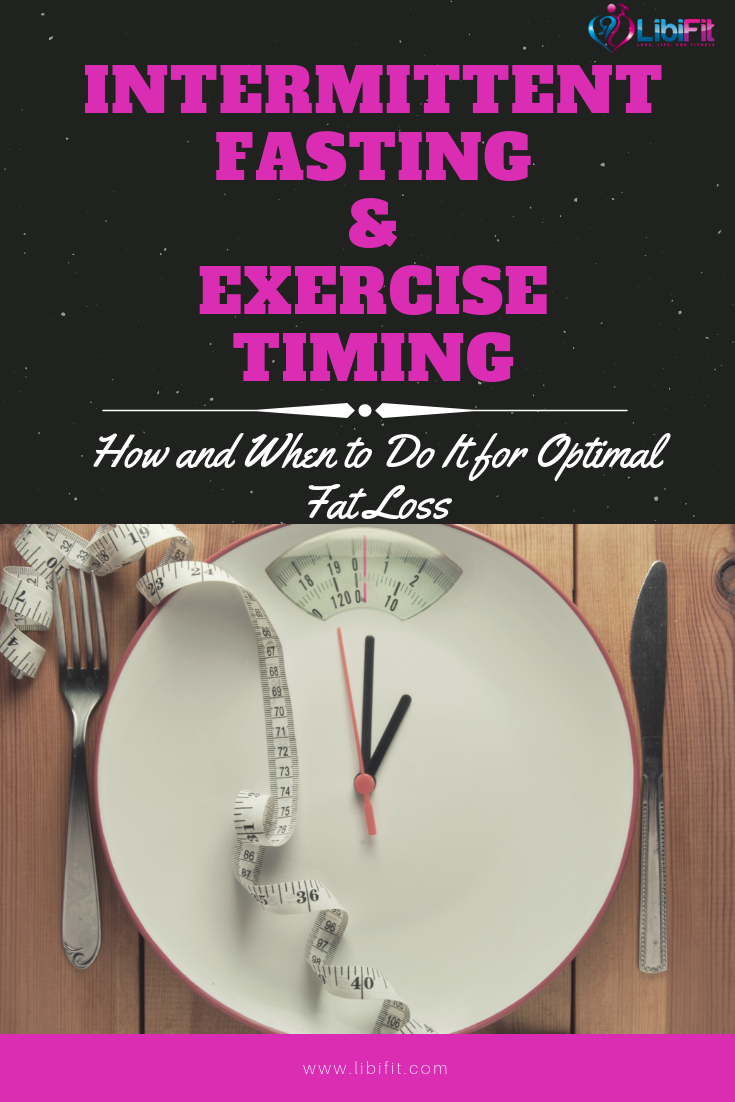Intermittent fasting seems to have picked up quite a bit of steam in the fitness world, for both men and women. People experimenting with it have experienced impressive results in terms of fat loss. At the same time, a lot of questions have been raised regarding this dietary approach, especially in terms of intermittent fasting and exercise timing.
In a world where you reach for a snack every few hours, it makes sense that your bodies welcome the natural patterns of fasting, similar to those of our ancestors.
Your Situation is Unique
But what does exercise look like while you are fasting? This depends on a number of factors. One of these factors is the type of fasting you choose. Some people fast for 16 hours straight and eat for eight every day. Others consume between 500 to 600 calories on any two non-consecutive days of the week. Your method of fasting affects your energy levels at various times of the day.
The relationship between intermittent fasting and exercise timing may also depend upon how your body responds to fasting. Experts usually advise listening to your body. If you are too weak to workout because of fasting, then you should not do it. If you feel energized during your fasts, then workouts during the fast may be feasible. It all comes down to a personal choice and your own personal body.
But is there a right or a wrong time to schedule your exercise routine? What about fasted training?
The fact is, there is never a wrong time to train, but the timing can definitely throw off your fasting, making the process slightly more difficult. This is particularly true if the fasting period is already hard for you due to the hunger pangs that constantly keep kicking in.
So, if you want to go for intermittent fasting but don’t want to give up on high-intensity training, what should you do?
Avoid Morning Workouts
Most people tend to exercise in the morning for the sake of getting it out of their way. This usually works well for most of the people but definitely not for someone who is fasting.
This is because when you factor fasting into the equation, working out early morning may increase your appetite. This makes the ensuing hours a challenging battle, especially when you have several more hours of fasting to complete.
A typical intermittent fasting schedule tends to last from 4 to 8 hours after getting up every morning. In other words, if you get up at 8:00 am, you would not be able to have your first meal until 12:00 pm to 4:00 pm.
Imagine getting off a strenuous workout routine at 9:00 am only to realize that you cannot have your first meal until 3 to 7 hours.
Following such a routine may accelerate weight loss, but would you be able to keep up with it in the long run? Probably not. Also, after a long workout, your body will be looking to be restored.
What is the Best Time for Fasted Training?
So, what should be the ideal time frame for a workout during intermittent fasting?
Consider exercising out just before having your first meal.
If your first meal of the day is scheduled for 2:00 pm, start exercising at 1:00 pm. In this way, there wouldn’t be enough time between the conclusion of your workout and the first meal.
Alternatively, you can also work out right after having your first meal. Perhaps you can have a small lunch at, suppose, 2:00 pm followed by a workout session at the gym from 3:00 pm to 4:00 pm.
By the time you come home, it will be time for your second and supposedly larger meal.
Basically, all you need to do is adjust your eating plan according to your eating window.
If you follow the above-mentioned advice, it puts your workout session in the afternoon. This may not be realistic for most people with a typical 9 to 5 job. In this case, you have the option to plan a workout session in the evening.
An evening session would possibly put exercise immediately before the final or the second to final meal. Hence, it would eliminate any hunger issues which are making it difficult for you to lose weight.
This is just one approach to fasted training. Overtime, you can actually condition your body to workout fasted with little adverse consequences and burn even more fat. You can read more about the benefits of fasted training here.
What if You Can Exercise Only in the Morning?
What if you work from 9 to 5 and have family commitments as soon as you get off? How can you manage intermittent fasting and exercise timing in such a case?
If the morning is the only time you have for exercise, do not worry. Knowing you are going to work out every morning, you should think about what to eat the day before. This mainly depends upon the intensity of your workout session.
For example, if you are planning to do cardio, you must build your glycogen stores with complex carbohydrates the night before. This way, you will have enough energy for muscles building and fat burning the very next morning.
Those of you who love working out in the morning can simply shift your eating window from 8 a.m. to 4 p.m. This way, they will be able to fast from 4 p.m. until the next morning.
Manage Your Intermittent Fast with Simple Tips
Still stuck between intermittent fasting and exercise timing? Are you still wondering how will you resist the increased hunger pangs hitting you both pre- and post-workout?
Sure, you can definitely overcome them with sheer willpower, but it is definitely not going to be easy. So, perhaps you should try a few other things.
For instance, you will be surprised to know how much staying hydrated can reduce your appetite. Keep a bottle of water with you always. Take a sip every few minutes to avoid your body mistaking dehydration for hunger. Consuming sparkling water is more beneficial because the carbonation may help you feel full for longer.
Another way to kill the hunger pangs is by drinking a cup of bone broth. While it is extremely fulfilling, bone broth contains only 50 calories per cup. There is still much debate about whether or not bone broth throws you out of a fasted state. However, it bone broth helps to you to control your appetite better during and after a fast, I say go for it. Having a cup of bone broth during your fast, can help you to avoid binge eating when the fast is over.
After all, fasting does not mean entirely eliminating your calories. Liming the calorie intake to about a 100 will not defeat the purpose of fasting at all.
BCAAs and Intermittent Fasting
Some people have reported a reduction in appetite when consuming a BCAA supplement pre-workout. These supplements not only provide a bit of calorie to your body but also maintain the level of amino acids in your muscles hence, aiding in muscle gains. There is also a huge debate about whether or no BCAAs break a fast. I personally use BCAAs during a fasted workouts because, per my own body signals, my training and workout sessions are better and more intense. You have to do what is best for your body. Here are a few articles and OPINIONS on consuming BCAAs during fasting.
Say No to Cardio
Cardio increases your appetite, forcing you to eat more. This nullifies the calories you just burned during a session on the treadmill. Hunger levels are proportional to the amount of energy you spend. If you are burning 500 calories during a Zumba session, your body will crave 500 calories worth of food.
While discussing the relationship between intermittent fasting and exercise timing is important, it is equally significant to focus on the type of exercise. As it pertains to traditional forms of exercise like jogging or other low intensity steady state cardio (LISS) should probably be avoided. Many bodybuilders and figure bodybuilding athletes swear by fasted cardio. It is can be effective in eliminating stubborn fat. However, the key is that those who typically perform fasted LISS do eat when they have finished the workout. They do not go hours without replenishing their system.
Everyone is different and you must determine what is best for you by listening to your body and your health physician. If fasted cardio and workouts don’t agree with you, your body will say it loud and clear.
Intermittent Fasting and Exercise Timing: When Should You Back Off?
As mentioned above, when it comes to intermittent fasting and exercise timing, you must always listen to your body. Knowing when to back off requires you to pay close attention to cues.
One risk of exercising while fasting is a really low blood sugar. For someone new to fasting, experts do not recommend enrolling in a high-intensity cardio or workouts while fasting. Especially when you are working at a high percentage of heart rate. This is because your blood sugar will start dropping; you may start feeling lightheaded and could possibly pass out.
Sounds a bit scary, right?
Performing exercise while fasting is, however, possible with proper planning and only after your body has become accustomed to doing so.
The most important thing to take into account for those practicing intermittent fasting is to determine their first meal of the day. Whether it is a 14-hour or 16-hour long fast, you must plan your first meal of the day properly and make sure it fits with to your workout schedule.
It is also important to eat more complex carbs, protein, plant-rich fibers, and healthy fats only to maintain a healthy fast. During the workout days, you will need more of all these types of nutrients compared to the rest days.
So, the bottom line is, you may go easy or hard. All you need to do is listen to your body and plan all your meals according to your exercise schedule.
Intermittent Fasting and Exercise Timing Takeaway
So, as it pertains to intermittent fasting and exercise timing, what should you do?
There is definitely a right way to do intermittent fasting and workouts and there is a wrong way. The right way, if you are a beginner is to time your workouts close to your first meal. For those who have become accustomed to fasting, and do not have the ime to exercise directly before their first meal, should start with very short low intensity workouts to see how the body responds. As your body becomes acclimated to workout out without food, you can increase the intensity. No matter whether you are a beginning faster or an experienced one, YOU MUSH DRINK A HUGE AMOUNT OF WATER.
The benefits of intermittent fasting are real and proven. However, pairing it with an early morning workout can turn the early hours of your day into a wild hunger fest if your body is not conditioned for it.
If you can help it, try moving your training session to the afternoon or early evening. This way, you would not have to spend the entire day daydreaming about the delicious meal you will have after your workout and fast are over.
If you want to learn about a great intermittent fasting method especially for women, checkout this article on cresecendo fasting.
Easily Begin Intermittent Fasting with Crescendo Fasting
Till next time…
